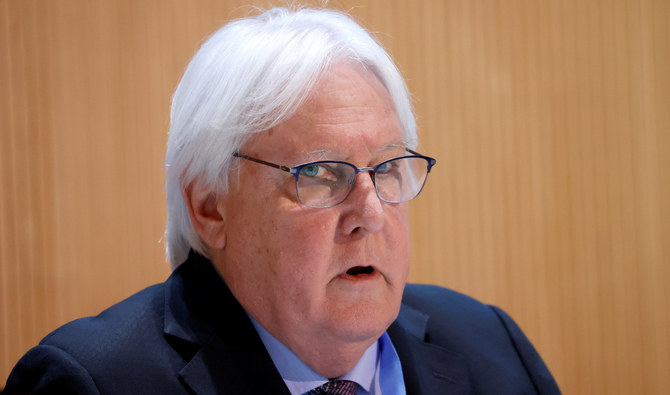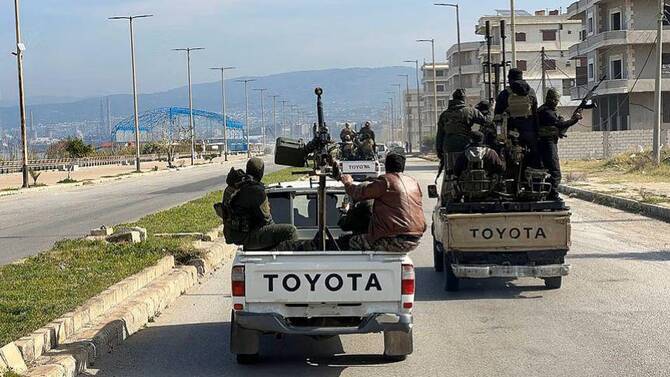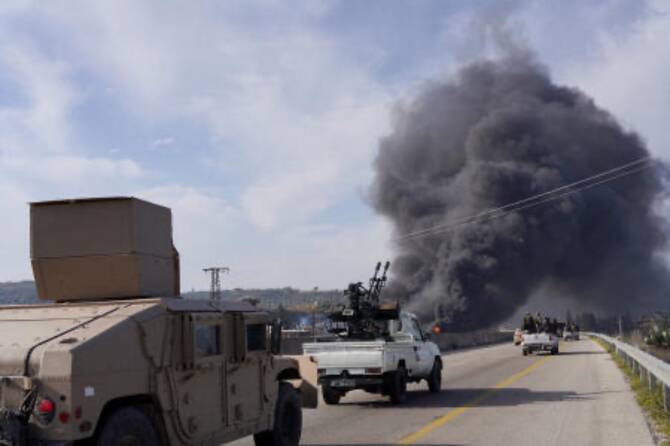Christopher Hamill-Stewart
NEW YORK: The humanitarian situation in Syria is worsening rapidly and the needs of the Syrian people are greater than ever, the UN’s aid chief said on Wednesday.
Martin Griffiths, UN under-secretary general for humanitarian affairs and emergency relief coordinator, told a meeting of the UN Security Council’s 15 members that “humanitarian needs in Syria are greater than ever, even though we may read about it less on the front pages of newspapers.”
He told delegates, including Turkish, Iranian and Syrian representatives, that despite billions of dollars in donations by the international community, humanitarian needs “tragically outstrip available resources.”
Griffiths said that at least 13.4 million people across Syria are now in need of emergency aid — a jump of more than 20 percent from the same time last year, and the highest figure since 2017.
Among the most pressing issues is access to clean water.
“The lack of access to safe water is disproportionately affecting the general health and reproductive health of women and girls,” he added.
Access to education, food and other basic human needs was in serious decline across the country, Griffiths said.
“Syria is caught in a downward spiral. The country will continue to be a place of tragedy so long as the conflict continues. Need and suffering will continue to grow in the near term,” the UN official said.
UK representative Barbara Woodward placed the blame for this crisis squarely at the feet of the Syrian regime and its benefactors — but stopped short of naming Iran specifically.
“Airstrikes and artillery bombardment, which violate the cease-fire agreement, have become the new normal in southern Idlib, with around 10 to 20 airstrikes currently recorded every day — directly affecting civilians and humanitarian workers,” she said.
“In recent weeks, eight civilians, including two women and one child, have been killed, including in heavy artillery shelling on residential areas of Idlib city by the regime and its allies.”
Woodward also highlighted the heavy price that humanitarian aid workers have paid for their attempts to alleviate the suffering of the Syrian people.
“Since March 2021, 19 humanitarian workers have been killed and 36 injured in the violence. We urge all parties to respect the cease-fire agreement and comply with the obligations to protect civilians and humanitarian workers.”
Amany Qaddour, regional director for Syria Relief and Development, told the Security Council meeting that aid workers in Syria had been providing lifesaving services in “a context akin to hell.”
As hostilities in the northwest of the country, one of the last remaining rebel strongholds, have escalated, so too has the humanitarian crisis, she said.
“In terms of some of the most vulnerable groups, what we’re seeing is increased violence — for women, for example, in terms of intimate partner violence. We’ve also seen an increase in rape cases, and other forms of sexual violence, in children and adolescents, in particular,” Qaddour said.
Children also have been forced into work, including heavy labor such as mining, to help their families survive.
Qaddour said that there has also been a recorded increase in suicides among children and young people. “The atmosphere is palpable with helplessness and despair,” she said.
In a powerful speech to delegates, she explained that the global pandemic has only served to exacerbate the suffering of the Syrian people.
Less than 1.5 percent of the population is vaccinated against the virus, and in some areas nobody has been inoculated. Instead, the government has relied on localized lockdowns to prevent the spread.
But in a context where the economy has crumbled, food is scarce and people rely on a daily wage, “lockdowns are essentially a death sentence,” Qaddour said.






















